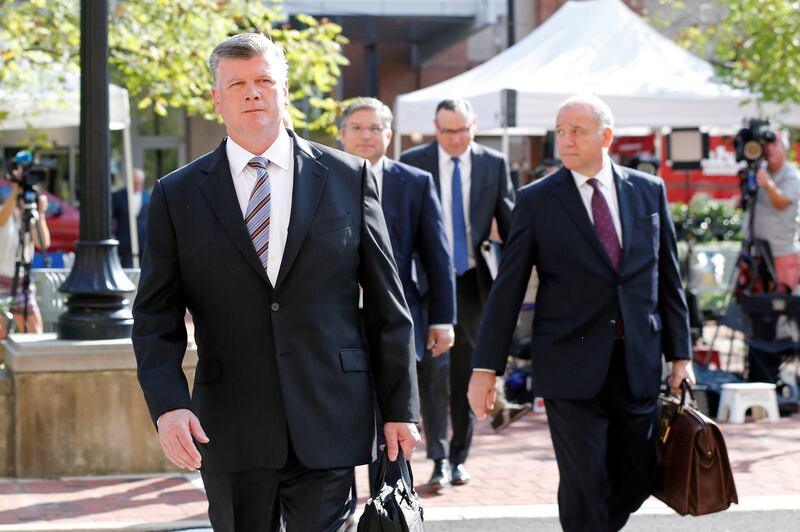Paul Manafort, US President Donald Trump’s former campaign chief, was ensnared unfairly by a federal investigation into Russian election meddling, according to the closing arguments of his defence team.
Prosecutors, who spent 10 days building their case, immediately objected, saying the argument violated a pre-trial agreement not to introduce the broader political context of the case.
The back and forth provoked two recesses, injecting a note of high drama, just before jurors consider their verdict, as well as a reminder of the way the case casts a long shadow over the White House.
Mr Manafort, 69, is charged with 18 counts of financial fraud relating to what prosecutors said was a complex effort to hide millions of dollars in income from Ukrainian politicians.
__________
Read more:
Paul Manafort defence rests without calling any witnesses
'We broke the law' Manafort protege tells court on return to stand
Manafort’s financial staff reveal opaque nature of his finances
_________
But Richard Westling, from his defence team, said banks had not reported any problems to regulators.
“It’s only when the government shows up and starts asking ‘how do you explain this?’ that people start feeling in hindsight something was wrong,” he said.
The trial is the first to come from Robert Mueller's federal investigation into allegations of Russian interference, although Mr Trump's name has been almost entirely absent from proceedings.
In their closing statement, the defence argued the government had set out to “stack up the counts” against their client.
Mr Westling cited, as an example, an accusation that Mr Manafort had continued to describe an apartment as a second home rather than a rental property on bank forms.
If this were fraud, then courts across the land would be filled with cases about Airbnb properties, he added.
“People do not get prosecuted by Justice Department prosecutors for having some issue with whether a property is a rental,” he said.
When the jury was excused for a recess, prosecutors argued that the defence had violated earlier rulings by suggesting Mr Manafort could have been audited by tax authorities, rather than face federal prosecution.
Judge T S Ellis said he would offer extra instructions to the jury that they should ignore any argument that Mr Manafort was singled out for special attention and remind them that there is no obligation for an audit before prosecution.
Earlier, Greg Andres, for the prosecution, said Mr Manafort had "a huge dumpster of hidden money" abroad.
He tried to secure $20 million (Dh73.5m) in loans with false financial statements in 2015 and 2016, and failed to pay taxes on more than $15m that he earned as a political consultant in Ukraine, according to the prosecution case.
"Mr Manafort lied to keep more money when he had it, and he lied to get more money when he didn't," Mr Andres said.
“This is a case about lies.”
Mr Manafort's defence rested its case a day earlier without calling any witnesses and without the defendant himself taking the stand.
The strategy sparked speculation that Mr Trump’s former aide was banking on a presidential pardon if found guilty or did not want to reveal further evidence that could be used in a second trial due to begin in Washington next month.
But Kevin Downing, one of the lawyers on Mr Manafort's team, told reporters outside court that they believe "the government has not met its burden of proof".
Much of the prosecution case was based on testimony provided by Rick Gates, Mr Manafort's one-time deputy, whom the defence tried to portray as a liar and embezzler caught with his hand in the cookie jar.
Although the charges predate Mr Manafort's time in Mr Trump's team, the courtroom drama has attracted Mr Trump's attention. He has dismissed the case as a "witch hunt".
“These old charges have nothing to do with collusion – a hoax,” he wrote on Twitter last week.






